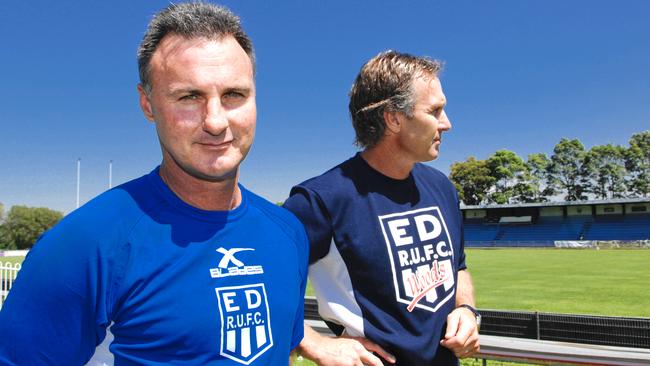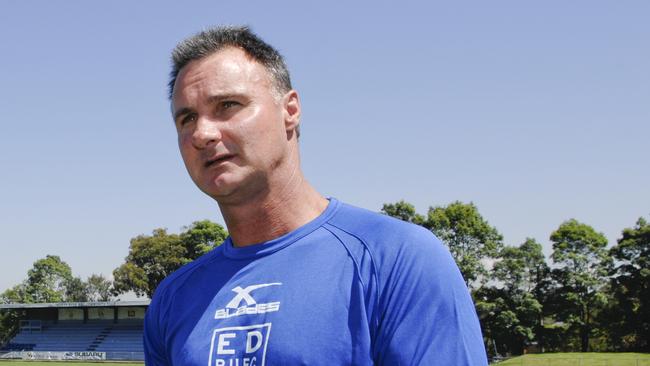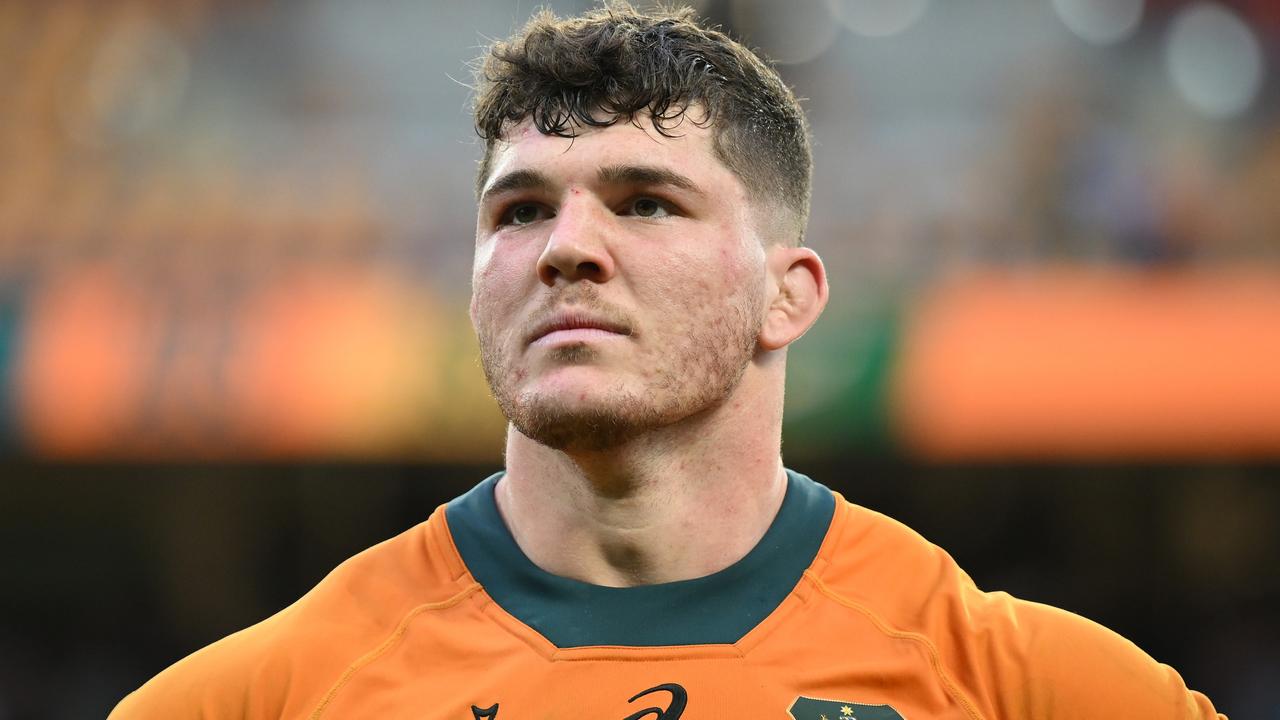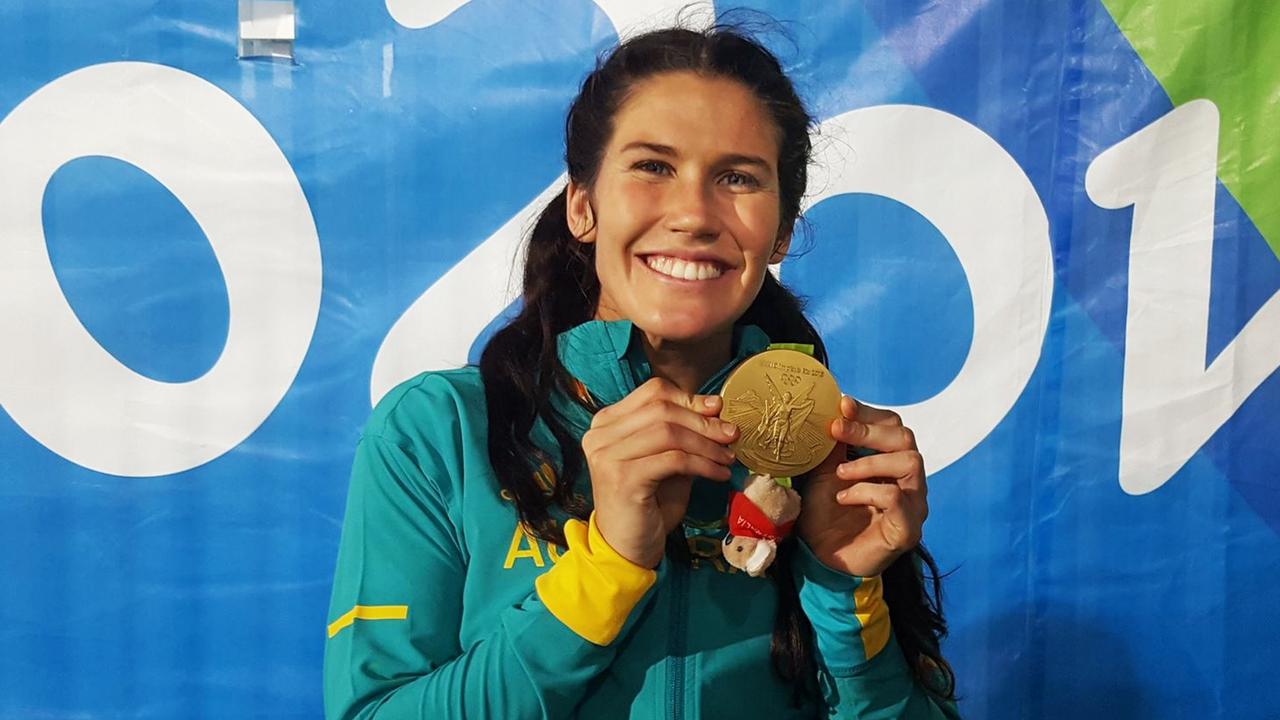Brett Papworth backs ARU plan to divert Super Rugby funds to grassroots but questions if money will materialise
BRETT Papworth has applauded the ARU’s pledge to pour millions into community rugby via the savings from one less Super Rugby team — but he questions if the money will materialise.

Rugby
Don't miss out on the headlines from Rugby. Followed categories will be added to My News.
ONCE the staunchest critic of the Australian Rugby Union, former Wallaby Brett Papworth has applauded the ARU’s pledge to pour millions into community rugby via the savings from one less Super Rugby team.
But while it’s an “admirable” step, Papworth says he is dubious about whether the ARU will have millions spare after paying the hefty costs of cutting a franchise and with the governing body conceding it will also have to keep bailing out the other four teams.
“At face value, it’s great news,” Papworth said.
“It’s fantastic and it’s something we should have been doing for a decade, investing in the grassroots. But I am not confident there will be any left to invest in the grassroots just by cutting a team.”
For years Papworth has been a sharp thorn in the ARU’s side over its perceived lack of engagement with community rugby, particularly in funding.
Scathing articles from Papworth have gone viral and last year co-authored a letter to the ARU demanding increased funding for grassroots that was signed by dozens of former Wallaby players and coaches.

Community funding amounts were disputed by the ARU but Papworth was among a delegation that met ARU heavyweights last year.
In his role as vice-president of Sydney Rugby Union, Papworth was at the ARU AGM on Monday where he heard the plan to reinvest a majority of the savings from the axed Super Rugby franchise into a multi-year funding package for grassroots.
Papworth said it was welcome news but he’ll reserve judgment until counting the banknotes.
“The issue for me is that regardless of how may Super Rugby teams we have, there should be money earmarked and put aside for community rugby. It should be the first money they spend,” he said.
“The savings are, what $6 million? I am not sure. Once they have fought the legal action, wound them up, made all the redundancy payments to staff, relocation, once they’ve propped up all the losses in the remaining franchises — and those losses are almost guaranteed — there isn’t any money left.
“Look, it’s admirable. There are a lot of very difficult circumstances. They know damn well they have to invest in the game long term but they just can’t get past the fact they have money problems.
“Super Rugby, regardless of how many teams they put in it, is a drain.”
Papworth appeared to almost hint at some sympathy for the under-siege ARU.
“The game has issues, and they’re not just the ARU’s issues. We tend to point the finger and we want to shoot an individual, and that’s not necessarily fair either,” Papworth said.
“The game is in the state it is in and it takes everyone to get us out of it. Difficult, difficult decisions have to be made and I’d like to see some of those.
“The rugby community finds it really easy to throw stones, right? And it’s really easy to do that from the cheap seats. It just is. They give us so much ammunition. But I think the rugby community want to see a bold step that shows them. You can’t just keep talking it up.”
Papworth believes leadership changes — at executive and board level — could be the first bold step to return confidence to a disillusioned Australian rugby community.
“The rugby community would see that as “right, we’re getting fair dinkum now”,” he said.
“What I saw at the AGM, the board sat up there, most said not one word. They’re all from the corporate end of town but if we had to talk share price (of the ARU), it would be in the toilet. If we had to talk market share, it is in the toilet. Yet nothing happens. That’s the issue for the rugby community.
“It’s the same people making the same decisions, and talking to all the same people. So nothing ever changes. That’s the view of the rugby community.”
Papworth said the ARU leadership had to stop “waking up every morning worrying about money” and start build strategies for Australian rugby to be successful again.


